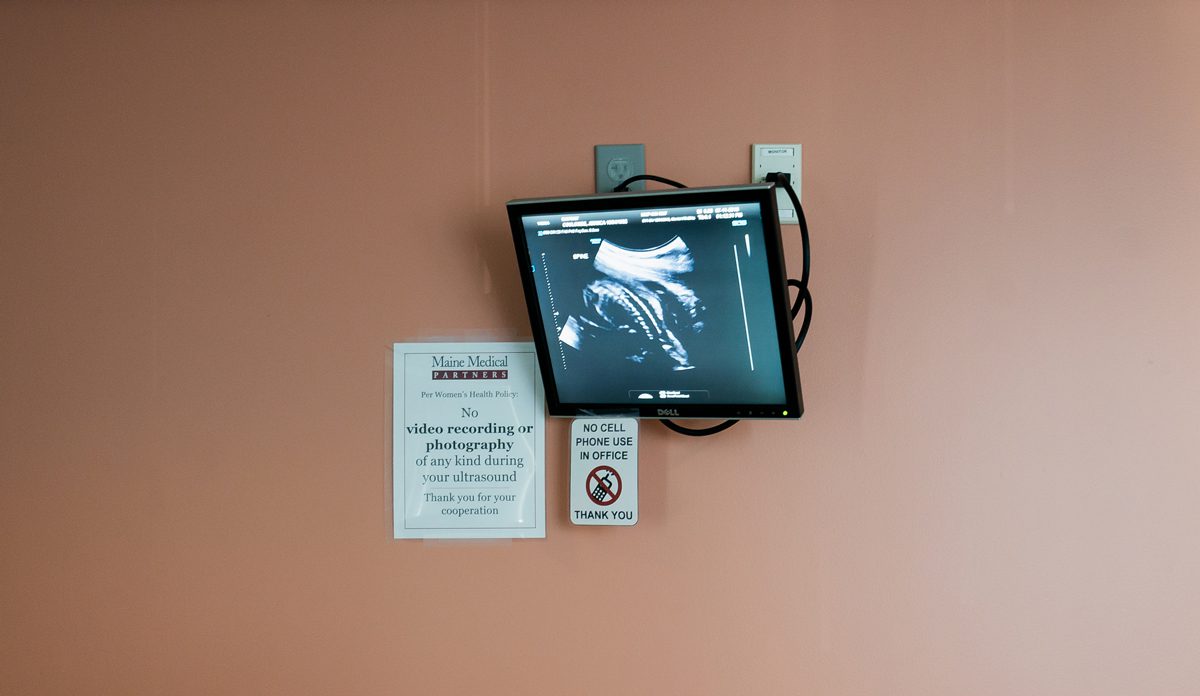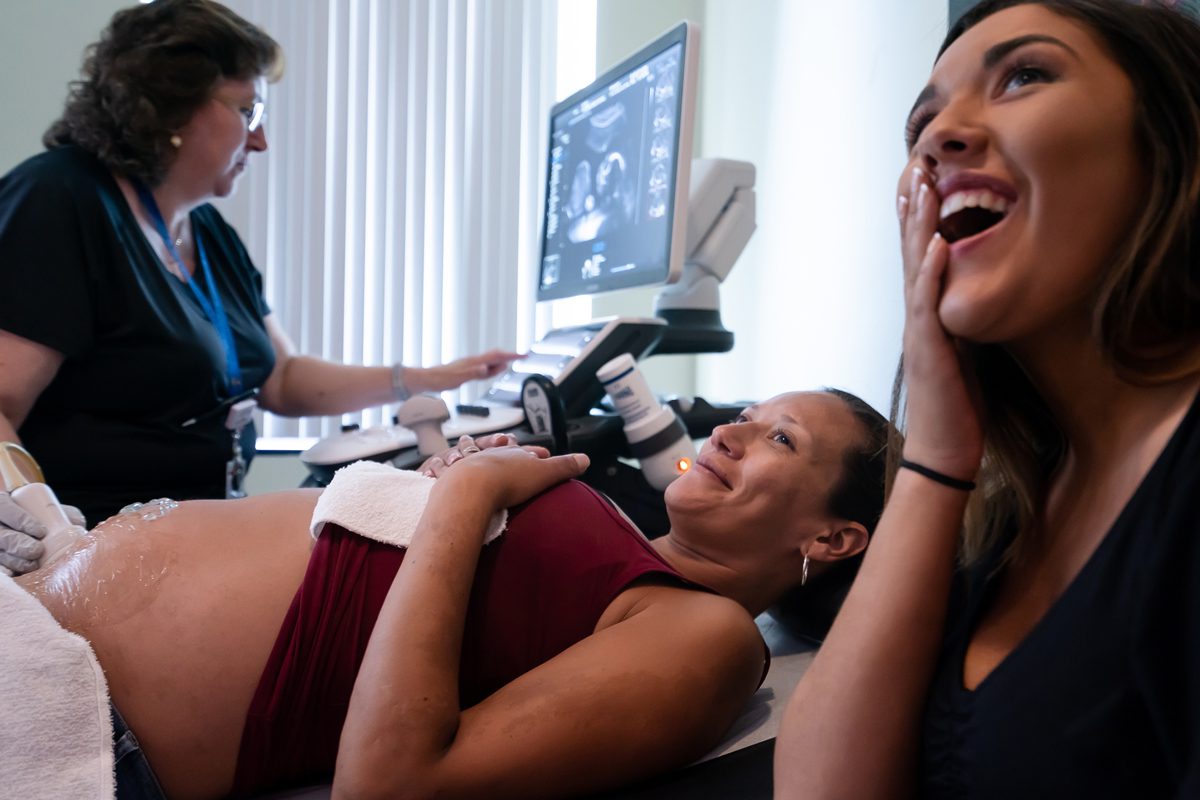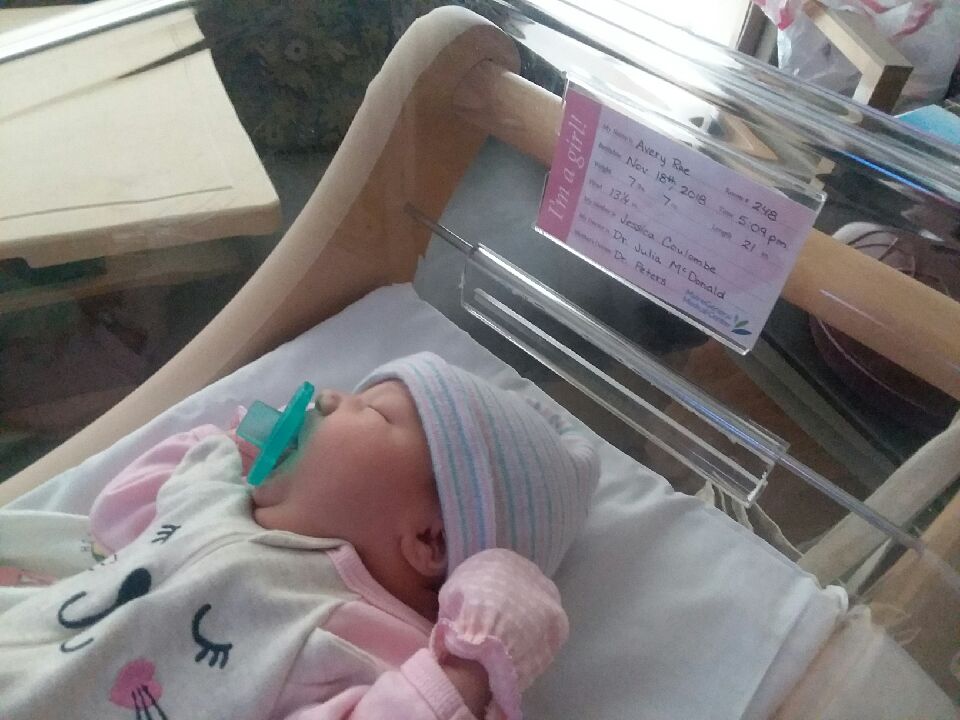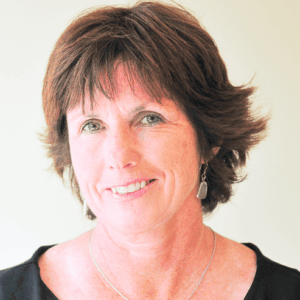The voices echo in her mind like an endless tape.
“You don’t deserve to be a mother.”
“You’re an addict.”
“You’re not worth another chance.”
Jessica Coulombe has heard these disparaging words many times from family members, strangers, social workers and her own conscious.
I’ve just hit every bottom, losing my kids. I’ll never be able to get them back.”
— Jessica Coulombe
During a 13-year span, Jessica had five daughters. She lost custody of them all because of her heroin and cocaine addictions.
“I’ve just hit every bottom, losing my kids,” the 36-year-old Augusta mother says. “I’ll never be able to get them back.”
In April, Jessica learned she would have another chance to be a mother. At the time, she was pregnant, homeless and still using heroin and cocaine.
“I was real hesitant about having the baby,” she says. “I thought about adoption or abortion, but I got to believe in myself that I can do this.”
After several overdoses, periods of sobriety and relapses, Jessica desperately wanted to recover. She wanted to birth a healthy baby, and more than anything, she wanted to keep her child.
“I’ve had enough hell living on earth,” she says. “I want to be sober.”

As Maine’s opiate epidemic has surged over the past five years, hundreds of women like Jessica have delivered more than one baby while on opiates. Maine Department of Health and Human Services statistics show that 69 percent of the 250 women who gave birth to a drug-affected baby between 2014 and 2016 also had another infant who suffered withdrawal symptoms during the same time period.
Stories about opiate-addicted pregnant women are complicated and chaotic. The suffering their babies endure often provokes anger and outrage from the general public. But opiate addiction, doctors say, is one of the most difficult and heartbreaking diseases to treat.
Recognized as a mental health illness, Opiate Use Disorder affects nearly all of the brain systems involved in learning, memory, motivation and pleasure. Changes to the brain are profound, long lasting, and often irreversible.
“As a society, we need to recognize that opiate addiction is a disease with chronic relapsing,” explains Dr. Julia McDonald of the Augusta Family Medicine Institute, where Jessica sought treatment and care during her recent pregnancy. “Treating pregnant women with addiction is very complex. It’s easy to judge the women, which furthers (the perception) that they are vessels for the innocent or the unborn. Many of these women could also be perceived as innocent within their history of trauma and abuse.”
As a recovering addict, she needs to know that she has someone to fall back on. At the end of the day, she’s still my mom, and I’m going to be there for her and for the baby.”
— Jessica Coulombe’s eldest daughter McKenzie Coulombe
Jessica’s eldest daughter McKenzie knows firsthand about opiate addiction and relapses. She’s lost all hope many times, certain that her mother would die of an overdose. For years, she wrestled with anger over her mother’s substance use and the pain it caused her four sisters and herself.
Still, the 19-year-old believes her mom deserves redemption and forgiveness.
“As a recovering addict, she needs to know that she has someone to fall back on,” McKenzie says. “At the end of the day, she’s still my mom, and I’m going to be there for her and for the baby.”
On a rainy summer afternoon, Jessica and McKenzie Coulombe sit side by side in a McDonald’s restaurant booth. They’re dressed in similar colors and clothes. Jessica wears a pink sweatshirt; McKenzie sports a pink T-shirt and a baseball cap. It’s clear that they are mother and daughter. McKenzie has her mom’s dark hair and brown eyes.
In April when she learned she was pregnant, Jessica stopped using heroin and cocaine. To increase her chances of staying in recovery, her doctor placed her on buprenorphine, commonly known as Subutext or Suboxone. Often prescribed to pregnant women, the opiate reduces cravings and withdrawals but does not produce a high.
McKenzie and her mother talk on the phone for nearly an hour every day. They shop and go out to eat together, things they never had the chance to do before. But their relationship is only newly mended and still evolving.
For the past several years they had little contact, but when Jessica was homeless last fall, McKenzie agreed to let her stay in her Oakland apartment. Months later after she moved out, her mother called and explained that she was pregnant. McKenzie was shocked.
“My heart dropped. I didn’t think she’d be able to do it, stay clean. I was scared.”
The next day, McKenzie texted her mom and asked: “Where do we go from here?”

Jessica didn’t know where to go for help, but she was certain she wanted to change. She and McKenzie learned about Family Medicine Institute in Augusta, which specializes in treating pregnant women with addiction, and made an appointment.
“I’m very proud of her,” McKenzie says. “This time is different for her. She chose to do this on her own.”
Though she has recently grown closer to her mother, McKenzie is still trying to sort out her feelings and memories. She spent a lot of time with her great grandmother or ‘Memere’ who lived across the street. As she recounts her memories at McDonald’s, her mother falls quiet.
I remember sitting in her lap one time in Memere’s kitchen and she was nodding off. I said, ‘Mom you look bad.’ She was doing heroin. I was about six.”
— McKenzie Coulombe
“Mom would come home from work and I’d watch her put her makeup on and get pretty,” McKenzie remembers. “And then she’d leave, and I’d hang onto her leg and beg her not to go. I didn’t get her time, her attention. I’d cry in my Memere’s arms for an hour after she left.”
As McKenzie got older, her great grandmother explained that her mother was using drugs.
“I remember sitting in her lap one time in Memere’s kitchen and she was nodding off. I said, ‘Mom you look bad.’ She was doing heroin. I was about six.”
Jessica would go in and out of treatment and periods of sobriety over the next several years as she had four more daughters. All of them, except McKenzie, were fathered by the same man, who also used heroin and cocaine. Each of her children was placed in DHHS’s custody during their early years.
As the eldest, McKenzie did her best to watch out for her younger siblings. She was nearly nine when her family was living in Bangor.
“It was just chaos. She was pregnant, and I was watching my two younger sisters. My mom’s boyfriend was very angry, yelling and screaming. My sisters were scared. They (Jessica and her boyfriend) had a little pink sparkly makeup bag and they’d disappear into the bathroom for an hour or so. I knew they were doing drugs.”
In 2008, McKenzie was adopted by her grandmother. Three of her four sisters were adopted by an aunt, the fourth was placed in the custody of a family friend.
McKenzie twirls her cell phone on the restaurant table as she explains that counseling has eased her anger and resentment.
“My counselor has helped me separate addiction from the person, but I never understood why her kids weren’t better than the drugs. It’s still hard for me to understand why wasn’t I good enough.”
Jessica turns to her daughter and speaks in a low voice, just above a whisper.
“It’s not you; it’s nothing you did or didn’t do. It was me. I just feel horrible. Oh my god, I wish I could go back and change it.”
Nearly seven months pregnant, Jessica sits at her kitchen table in a three-room Augusta apartment. She wears a flannel shirt that covers her expanding stomach. The neighborhood is not great, she says, but it’s all she can afford with her part-time job. For the past three months, she has worked at a local Thai restaurant as a hostess.
I just want them to do good, to be healthy and happy. When they’re older, I want them to know about addiction. I don’t want them to go down that road.”
— Jessica Coulombe, about four daughters that she hasn’t seen in years
Spread out on her kitchen table are pictures of three of her daughters, the 14-, 10- and 9-year-olds who live with her aunt. Her youngest daughter, who is 6, lives with a family friend.
“I haven’t seen them for four years,” Jessica says, her words heavy with longing. “I need to get more sobriety under my belt. I need to prove myself.”
She talks with her aunt to get updates on her daughters, and occasionally she receives photographs. The recent pictures show the dark-haired girls smiling on their first day of school.
“I miss watching them grow and going to school, going to sports events, memories and stuff. I miss everything,” she says picking up the pictures to take another look at her girls.
Jessica hopes to eventually see her daughters again, but she hasn’t pressured them for visits.
“I just want them to do good, to be healthy and happy. When they’re older, I want them to know about addiction. I don’t want them to go down that road.”

Jessica wants her daughters to understand how drinking and smoking marijuana at age 12 and hanging out with the wrong group of friends can lead to a lifetime of addiction. By the time she was 18, she had already started taking Percocet and Vicodin. A year later, she began using heroin and Oxycontin.
“I didn’t know how addictive they were. I didn’t know much about it back then.”
To help maintain her sobriety, Jessica regularly attends AA meetings and steers clear of former friends who are still using opiates or other drugs. She participates in group therapy as part of her treatment at the Family Medicine Institute and has completed eight weeks of intensive counseling. She is also mending family relationships, reconnecting with her mother, who refused to see her while she was using heroin and cocaine.

“It’s nice,” she says, smiling. “I go over there for Sunday dinners again.”
Despite her progress, Jessica knows that a DHHS case worker still will be called to the hospital when she gives birth.
“I hope they will see how good I am doing and just close the case. I just want to keep my baby.”
From her living room, Jessica picks up four pairs of pastel-colored pajamas that she and McKenzie bought for her baby. Weeks earlier, she learned that she will have another girl. Jessica holds the pajamas close to her chest and explains, “I can’t wait to hold her. I think I’m going to call her Avery Rae.”
On November 18, three weeks before her due date, she gave birth to a 7-pound, 7-ounce baby.
“She’s beautiful,” Jessica told McKenzie as she held her dark-haired daughter in her hospital room. “I can’t believe she’s here.”
McKenzie cried when she saw her baby sister. She posted a photograph of herself on Facebook holding Avery wrapped in a blanket.
“I love you so much,” she wrote. “I cannot wait to watch you grow and teach you everything I know.”
Though she was grateful for her sister, McKenzie still worried. She knows her mother remained substance free for 15 months after her last pregnancy, only to relapse again.
“We’re not out of the woods yet,” McKenzie says. “It’s definitely going to be a battle.”
In the days following Avery’s birth, nurses evaluated the newborn for signs of withdrawal from Jessica’s prescribed opiate replacement drug buprenorphine, which can cause excessive crying, irritability, diarrhea, and tremors. Because of her previous five custody cases, DHHS opened a new case file to evaluate her baby’s potential risk of harm.
As nurses and the DHHS worker came and went, Jessica tried to remain positive. She held her daughter close and sang to her, “You are my sunshine, my only sunshine. You make me happy when skies are gray. You’ll never know, dear, how much I love you. So please don’t take my sunshine away…”
Over the next few days, Jessica was relieved that her daughter did not show any signs of withdrawal.

“She’s been doing great,” Jessica says.
On Wednesday, on Avery’s fourth day, Jessica’s worst fear materialized. The DHHS caseworker returned and handed Jessica paperwork explaining that the state would be placing Avery in protective custody.
“Because of my history, she said I hadn’t been sober long enough. She said you can get her back. I said, ‘How soon?’ She said it all depends on me. She said to keep my home, my job. Keep doing what I’m doing.”
That evening, Jessica held Avery all night.
“I sang to her. I kissed her. I told her, ‘I love you baby girl. Momma’s gonna go, but I’ll see you soon.’ ”
Avery, Jessica learned, was placed with the family friend who took custody of her 6-year-old daughter. DHHS informed her that she can have supervised visits with the baby. She also has a civil court date on Monday to explain to a judge why she should be reunited with Avery.
The DHHS and the state attorney general’s office declined to speak about her case, saying they cannot comment on a confidential child-protection matter.
While she awaits the hearing, Jessica is back to work, trying to stay busy by having coffee with sober friends and spending time with her family. At night, she sleeps with the hospital blanket that still has the scent of her newborn daughter.
“I’m not going to give up,” she says. “Sometimes, it takes other people longer than others to change. I get frustrated with myself. I don’t like this disease, but I didn’t just carry another child for nine months and go through labor and pain not to keep her. I just hate addiction, I do.”







